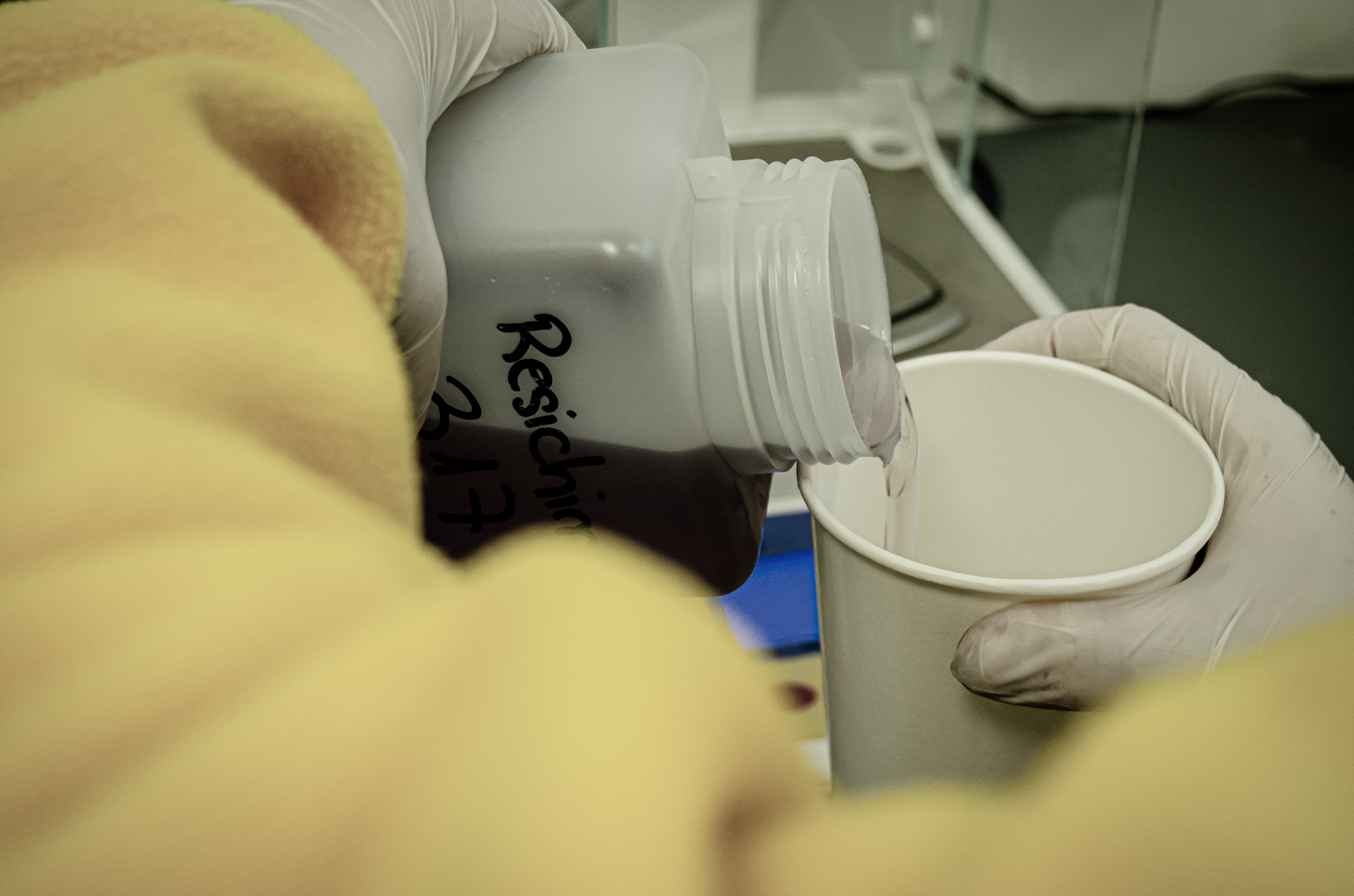LABORATORIO DE MATERIALES

Investigamos y diseñamos
En los últimos 10 años hemos estudiado principalmente el poliéster reforzado en fibra de vidrio (PRFV). Con todas sus variantes. Distintos grosores, distintos tamaños, distintas resinas, que dan lugar a distintas propiedades del material.
Los ensayos que se realizan en el laboratorio se basan en normas ISO.
Según los productos a analizar podemos distinguir dos grupos de ensayos. Los realizados sobre los productos fabricados (las placas de PRFV, plástico reforzado en fibra de vidrio) y los realizados sobre la materia prima (resinas y gel coat).
Además, realizamos controles de calidad en la fibra de vidrio y estudios de I+D.
Junto con algunos de nuestros clientes, desarrollamos sus productos, probando con diferentes resinas, realizando estudios de diferentes resistencias químicas o a través de resistencias a la luz UV. Así logramos descubrir cuál es la mejor opción para cada proyecto.
Principalmente hemos estudiado resinas de los siguientes tipos:
- Resina isoftálica
- Resina isolftálica + tratamiento térmico
- Resina vinilester
- Resina ignífuga
Colaboramos con laboratorios externos para ampliar posibilidades pudiendo testar diferentes indicadores
Ensayos bajo normativa ASTM
- D638 de Tracción
- D790 de Flexión
- D695 de Compresión
HDT, Tracción y Conductividad
- HDT, Tracción y Conductividad
Certificado de agua potable
Placas de PRFV
Control de producto fabricado
1. Sobre placas PRFV
- Ensayo de tracción
- Ensayo de flexión
- Ensayo de la densidad
- Ensayo de la calcinación
- Ensayo de la dureza Barcol
2. Control de materias primas
- Ensayo de la viscosidad
- Ensayo de la densidad
- Ensayo de tracción
- Ensayo de flexión
- Ensayo del tiempo gel
- Ensayo de la dureza Barcol
- Ensayo de los sólidos
- Determinación del color tabla RAL
